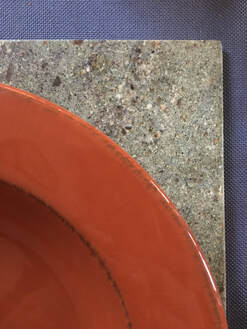 When we find out we are a beneficiaries from something stolen, how are we to react? This question is nagging at me from several angles today. Thanksgiving reminds me that the land that I live on is stolen land. This week's Torah portion, Toldot, reminds me that I am the beneficiary of a stolen blessing (being a descendant of Jacob, who steals the blessing that his father Isaac intended for Jacob's twin brother Esau). Both stories are full of pain, which makes it easy to want to find justifications for them. "How can I hold myself responsible for something that happened so long ago?" we might want to say. Or maybe, "MY people weren't the ones who did the stealing, so it's not my responsibility." Or even "We don't even know if Jacob really existed. How could the blessing he presumably received really be impacting my life today?" These responses are cause further harm in (at least) 3 ways:
After discovering the theft of his blessing, Esau asks his father Isaac, “Have you not reserved a blessing for me?” but Isaac responds that the nature of the blessing is one of domination: “I have made him master over you: I have given him all his brothers for servants.” One of the dangerous legacies that the descendants of a blessing of domination is a continued sense that we are at war with our siblings, that our only choices are to dominate or to be dominated. I believe there are other ways to give and to receive blessings. Being blessed does not require dominance. Blessings need not be so scarce. If Thanksgiving is a day where you recall the blessings of your own, individual life, I hope the day is filled with gratitude that helps you to get in touch with your ability to give as well as to receive. And I hope that as much as possible, we seek opportunities to give blessings that need not be private, that cannot and need not be stolen.
0 Comments
|
AuthorRory Katz is the rabbi of Chevrei Tzedek Congregation in Baltimore. She was ordained by the Jewish Theological Seminary of America in May 2019. Archives
March 2022
Categories |
3101 Fallstaff Road
(at the Edward A. Myerberg Center)
Baltimore, MD 21209
(at the Edward A. Myerberg Center)
Baltimore, MD 21209
 RSS Feed
RSS Feed
